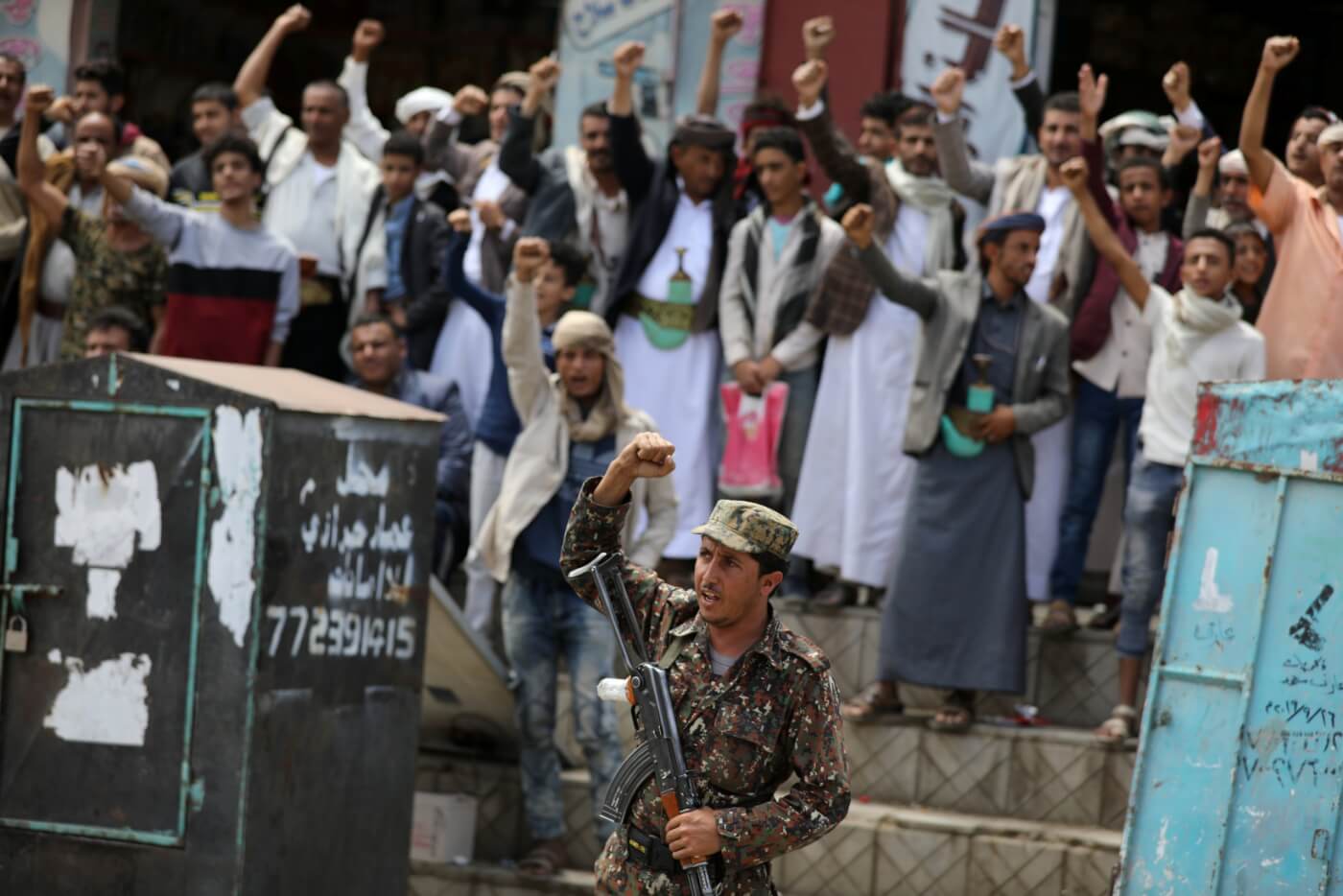A court in the city of Sanaa, the capital of Yemen, a region largely controlled by the Iranian-backed Houthi rebels, tried more than 100 politicians, activists, and tribal leaders. Observers, lawyers, and members of local non-governmental organisations questioned the trial process and the validity of the court.
Majed Fadhail, the Yemeni deputy minister of human rights and a member of a governmental delegation involved in prisoner swap talks with the militia, was tried in absentia. He was informed of the prosecution by Abdul Basit Ghazi, a Sanaa-based lawyer who defends exiled activists facing such questionable trials in Houthi courts.
The deputy minister, alongside dozens of other defendants is accused of ‘colluding with the militia’s enemies.’ Fadhail, described to Arab News the absurdity of the trial and condemned the Houthis for continually forcing judicial authorities to use the courts as a tool of political oppression. His comments to the Arab News indicate that the Houthis may be using this trial to influence the ongoing UN-backed negotiations regarding prisoner swaps–a production that could be described as arm-twisting:
“These absurd courts used by the Houthi militia will not intimidate us because we have nothing to lose and we will continue to resist…What is strange is the timing of this farce that occurred while we are negotiating with them under the UN-brokered prisoner agreement,”
Fadhail’s bank accounts have been frozen and his personal properties in the area under Houthi control have been seized.
Abdul Basit Ghazi, the Sanaa based lawyer, challenged the judge about the prosecution of a government official while he was engaged in diplomatic talks with the Houthis.
Delegates from the internationally recognised government and the Houthis met on Friday for the first time in seven months. The two sides met to finalise a long-delayed deal intended to finalise a prisoner swap that would result in hundreds of prisoners swapped between the two sides–a highly controversial solution that may encourage the Houthis to imprison and kidnap more innocent civilians—a reality that can has been described by many as “hostage diplomacy”
Having been involved in the negotiations, Mr. Fadhail said that delegates swapped lists of proposed inmates who would be released in the first stage of the deal and he said he was “optimistic” that the talks would ” yield good results this time.”
Some observers of the situation in Yemen believe that successful negotiations for a prisoner swap could pave the way for a new round of peace talks to end the long-running war.
Another defendant involved in the Houthi-run trial was a tribal leader, also tried in absentia. He may have been targeted because the internationally recognised President Abed Rabbo Mansour Hadi had visited him in the hospital when he was sick. Mr. Ghazi learned from a Facebook post, that the court had prosecuted former minister Nadia Al-Sakkaf for appearing at a conference in Riyadh in 2015.
On Monday 21 September 2020, UN Special Envoy for Yemen Martin Griffiths urged all those living in Yemen to unite under the rule of law, accountability, equal citizenship and peace:
“To Yemenis, especially those in civil society and women and youth groups, I salute you all, on your courage and persistence…Please continue to advocate for a future of equal citizenship, rule of law and accountable governance for your country. To the warring parties, I say: On this day, I hope you reflect and find the courage to take the first step toward giving the people of Yemen the peace they need and deserve.”
Last week, US State Department officials and members of the UN Security Council condemned the Houthi aggression. State Department spokeswoman Morgan Ortagus said:
“The United States remains deeply concerned by the Houthis’ aggression, supported by Iranian weapons shipments in violation of UN arms embargoes… [including the] disgraceful treatment of journalists, opposition activists, and Yemeni Jews.”
IOHR campaigns for four Yemeni journalists unjustly charged and facing the death sentence. Follow the campaign here.

